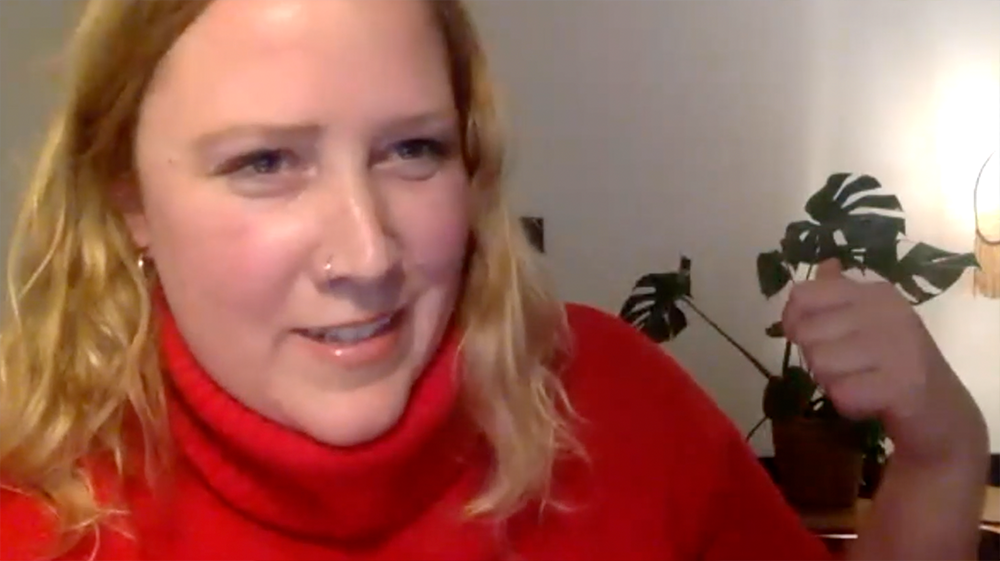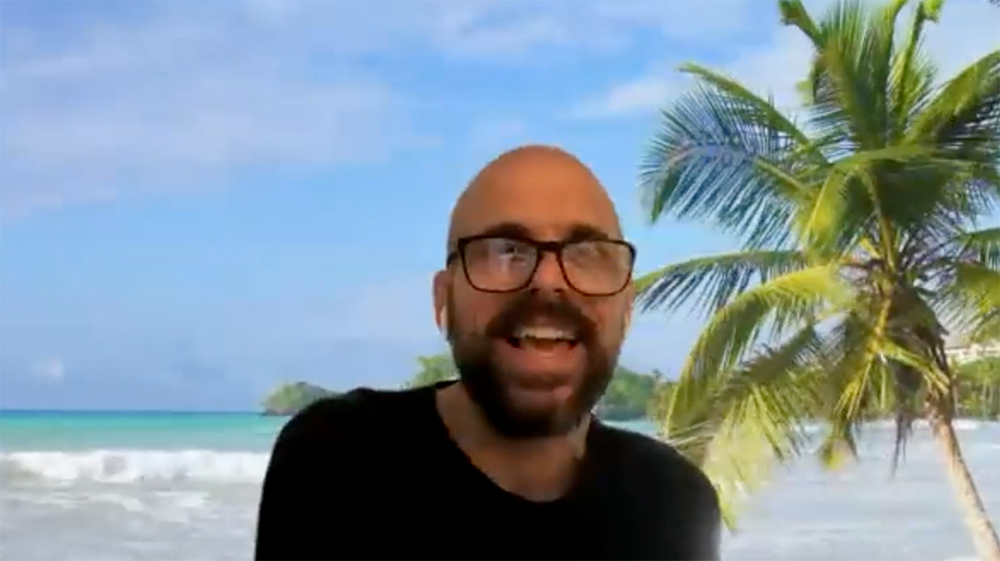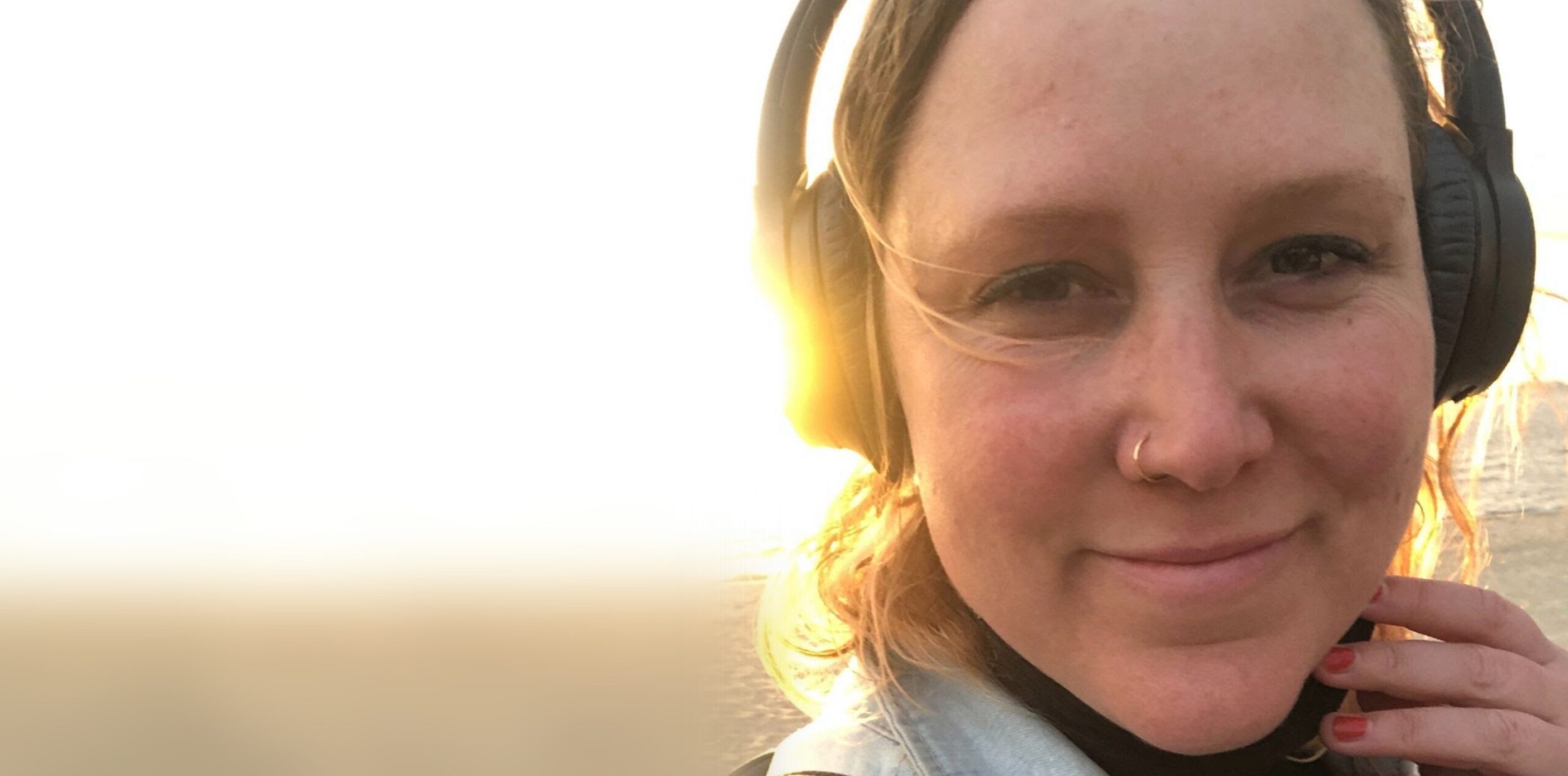Communities Are Key: Big Careers Start Local
#HowWeListen Live: In Conversation with Sarah Hamilton took place on Tuesday, June 7th, 2022, live from Australia. Sarah Hamilton, Regional Manager for Australia & New Zealand at Ditto Music.
Sarah joined us from Melbourne, Australia
The following transcript has been edited for length and clarity.
In the digital age bands no longer have to break out of their small town, then big city, and finally their country to make it. Sure you can get on an international playlist but is anyone listening? In Part, I (below) Sarah Hamilton introduces what Ditto Music is , what the company does and how to take your music global from anywhere.
The following transcript has been edited for length and clarity.
Marc Brown: Hi Sarah! Let’s start by you telling me what you do exactly?
Sarah Hamilton: Sounds good. I am currently the regional manager for New Zealand and Australia for Ditto Music. We are a music company that does primarily distribution but a bunch of other things as well. I’ve been there for nine years! I also co-founded a charity called One of One. One of One started as a website where we interviewed women and non-binary people in the music industry. Now it has turned into much more.
Marc: So, how did you get going? What was the arc of how you got to where you are now?
Sarah: I’m from a rural town in Queensland, Australia, and I’ve always been a complete music nerd. Since I can remember, I’ve loved music, and I knew that’s where I wanted to be. I went to University and studied music after high school. When I left, I saw a job opportunity for a digital distributor in Queensland. I wasn’t sure what it was. That said, I ended up joining the first distributor specialising in digital distribution in Australia, which was in about 2005.
Marc: Didn’t you tell me a story about you being in New York and discovering Netflix for the first time? Which had not made it to Australia yet?
Sarah: Yeah, I lived in New York for a bit in 2001. At the time, I already had some experience in digital distribution. Then iTunes was a thing, but there was no Spotify or Netflix in Australia then. I went to the U.K, and there they were more commonly using Spotify. People would be talking about it at parties, and I loved it! So when I was in New York, Netflix was getting really big, and I kept thinking, “wow, this is the future”.
Marc: Yeah, things have changed so dramatically. The idea that you can go somewhere else and see how they do things and then think about how these things will affect where you’re from is so interesting. Is that how you were thinking about it?
Sarah: Yeah, I definitely think Australia sometimes feels that we don’t get the latest stuff. I definitely thought that it would gain traction here since it was getting traction everywhere else.
Marc: So when did you start with Ditto?
Sarah: 2013.
Marc: And what do you do with Ditto?
Sarah: A big part of my role is searching for new music, deciding what we want to sign and then pitching for playlists with the DSPs (digital service providers) and ensuring people have as smooth of an experience as possible.
Marc: So for people who sort of know what Ditto is, how is it different from other distributors like CD Baby?
Sarah: I feel like it must be hard, as an artist these days, to try to sort out who you want to go with. Ditto is an entirely independent company which I think is really valuable. The Ditto motto is to stay independent. We understand that major labels often have a lot to contribute. Still, we think there’s a lot of value in artists staying independent while they can so they have creative control and can choose how things roll out but still have access to many of the same opportunities.
Ditto has a global network, and it’s at that level where we can make big things happen, but we’re still smaller than many other companies. With some companies, you may get siloed, meaning you get put in an area like Australia or New Zealand and you kind of stay there. At Ditto, we’re always trying to figure out how we can get our artist’s attention in other markets.
We have two sides to the business. Firstly, we have a subscription service similar to DistroKid or CD Baby. Then we also have Ditto Plus. We carefully select who we want to work with and then try to promote those artists. So, get playlist placements and really push them. We keep that pretty lean to focus on the ones we sign.


Marc: I’m super interested in hearing more about what you were saying about expanding beyond your area. If we rewind to before digital was a thing, it was tough to get your music in other countries, but that has changed a lot. Now, it’s easy to get your music out there, but that doesn’t mean people are listening.
Before we talk about that, tell me more about your One of One charity. When did that start, and why?
Sarah: I started One of One with a friend, Joanna Cameron. So Australia has this thing called The Power 50, and it’s this list of people in the Australian music industry. It used to be dominated by the big power players, that were most often men. We thought that was frustrating because some amazing women are working in this industry, and they are either what they are doing is not being highlighted, or these great women are not putting themselves forward.
We had this idea to start a website and interview women and non-binary people in the industry who were doing great things to share their stories. When we started, we weren’t sure if anyone would ever read it, but when we launched, we got lucky because it was International Women’s Day, and many people and outlets picked it up and asked us about the concept. It got to the point where the people who curated The Power 50 list were asking us if there was anyone we thought they should include. Some people in our One of One list have even been hired based on their profile!
Besides running the website, we also created One of One events for International Women’s Day, and the industry has really supported us in that. The aim is to inspire people and highlight the women working in the industry.
It’s become something bigger than I thought it would, and we have a lot of ideas for the future. It reflects this generosity within the community where people volunteer or support the concept financially. It’s also entirely independent, and I think there’s a lot of power in that because we can do what we want.
Marc: Right! I like this idea of community. When I think about Australia, especially 20 years ago, only a particular type of music got exported to other countries. It’s changed a lot. I’d love to talk to you about that. You seem to know a lot about being local but also working internationally and getting an artist’s name out there instead of waiting for them to be huge in Australia first.
So what about finding new artists in Australia. Can you talk a bit about how it used to be and how it’s changed?
Sarah: Absolutely. I totally agree that it used to be that artists had to pay their dues, and it was challenging to break out of your home country. Now, one of the first questions I’ll ask an artist we’re looking to work with is, “Are there any other regions where we could pitch this to?” So, for example, if they’ve toured anywhere else or had ties to another region that we could use when pitching their music – it’s all-important.
I think that things can happen quickly in music. Things on TikTok and YouTube can take off really quickly, and it’s often about a particular sound rather than where the artist is from.
Marc: So, how do you find newer artists in Australia? How does stuff end up on your radar?
Sarah: Definitely a variety of things. Having been in Australia for a long time, many people have my phone number and email address, and I get sent stuff quite often. I also go to live shows where there’s a certain magic and connection that you can’t describe. Seeing that energy in person is really special and might make me want to work with an artist even more.
I also find out about new music just by having conversations! My friends that work in music talk about bands all the time. I want to add that I think it’s important to touch on the diversity side of things. We need to ensure that other people find music and make those decisions. I think it’s important for people in positions like mine to change and have people of colour and First Nations people in these positions because it’s not right for the same kind of person to make these choices about what should be pitched and playlisted. A lot of finding new music is also data and analytics-driven. We can always see what’s doing well on which platforms and go from there.
Marc: One thing I want to highlight is that one of the first things you ask an artist is that you ask them where they expect their music to do well. I always say that everyone is looking for someone else to tell them what to do, but the artist needs to know where they are and where they’re going.
Being from Canada, I remember when Canadian bands couldn’t get noticed on the music scene, but now it’s changed. Being from a smaller market like Australia, is that a good thing? When you start working with a newer artist who has maybe done a few shows, what are the steps to get them going?
Sarah: I like to connect with people where I can. There are a lot of great operators in Australia and managers, publicists, radio etc. I might suggest to an artist some people with whom they should work. I think the team is important to get right – having people who believe in what you’re doing is essential. One of the great things about Australia being a small place is that a lot of people at Spotify or Apple etc., know what’s happening. It’s not like the U.S, where there are hundreds of thousands of acts. So once something starts to take off in Australia, people take notice.
I do start by asking artists questions to gauge what they’d be like to work with and how well they know the market. It’s a bit of a red flag when I ask someone what kind of artists they like or might be similar to, and they say that they don’t listen to music or are just concentrating on themselves.
Marc: Does that happen often?
Sarah: Yeah. Some people are in their own lane and don’t know what’s happening out there. Another question I like to ask is what Spotify playlist you think your music fits on. Many independent artists are just on it, making it easy for me.




